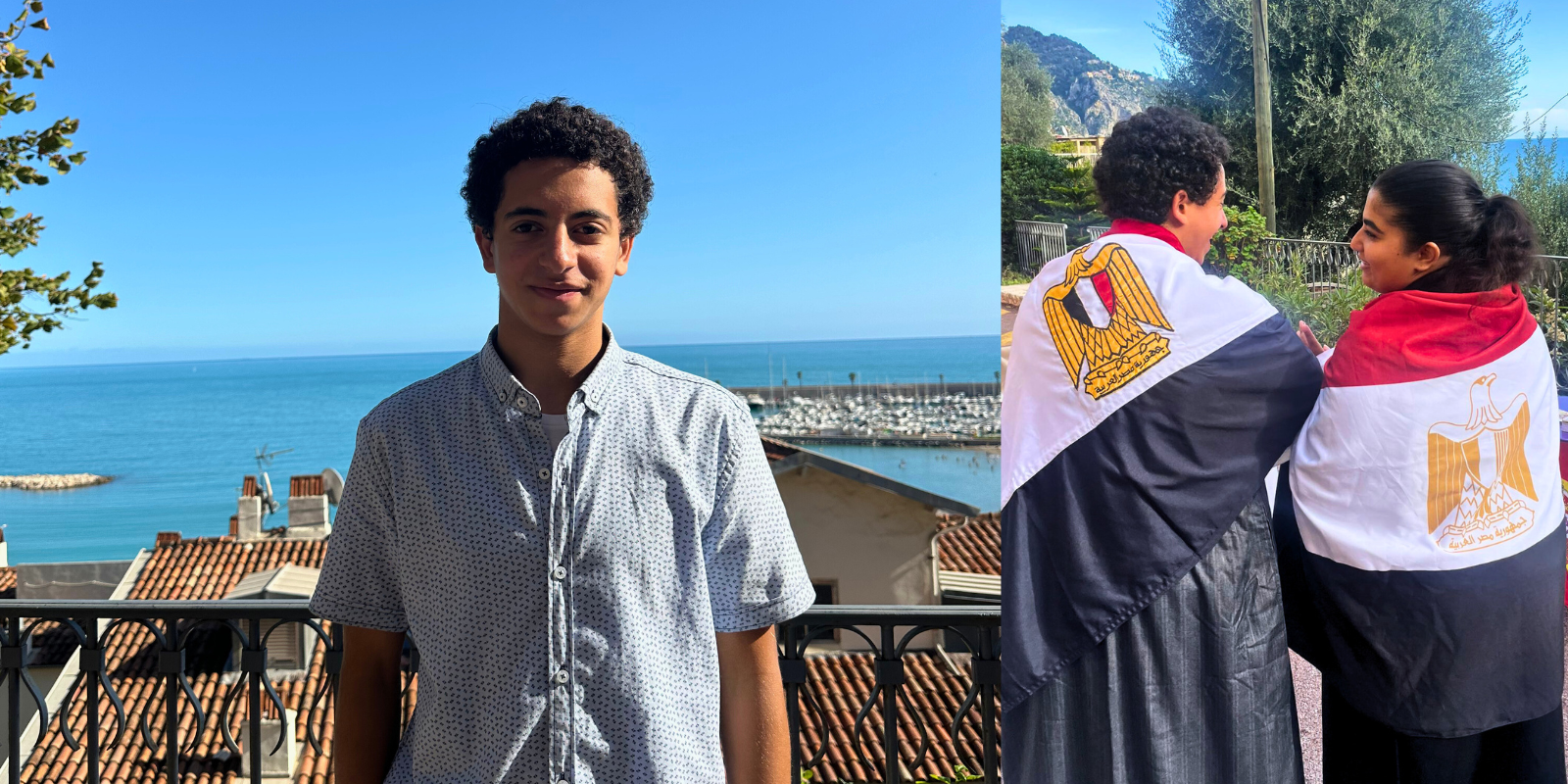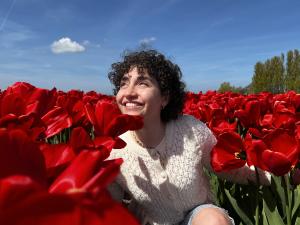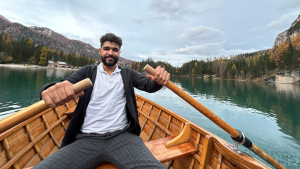
Leaving Egypt to Discover Egypt: The Unexpected Lessons of a Study Abroad
When junior Marwan Shawwara moved to the south of France to study at Sciences Po last fall, he was prepared to step outside of his comfort zone and experience the trials and tribulations of a semester abroad. Most of the time, Shawwara lived as a typical exchange student — he found community, made lifelong friends, played college soccer with weekend tournaments around France, and backpacked through seven countries and 24 cities. “It’s me and my backpack against the world,” he said.
However, what the political science major didn’t expect was that he would reach a new understanding of his own country by meeting Egyptian refugees scattered along European frontiers.
Egyptian Encounters
Long interested in equality and justice, Shawwara began volunteering with the AUC student organization 3alraseef in his freshman year, educating and spending time with impoverished children in Manshiyat Nasser twice a week. At Sciences Po, Shawwara kept up his commitment to volunteer work, documenting refugees at the Franco-Italian border crossing with Sciences Po Refugee Help, a student club.
It was through this role that he discovered a new side of Egypt: the country’s politically marginalized. Throughout the semester, Shawwara learned lessons about Egyptian politics from his fellow countrymen that further shaped his identity and future plans.
“Most of the refugees are unfortunately from our region, North Africa. It was a different experience seeing them firsthand, communicating with them, listening to them,” he said. “These people are not just numbers crossing the Mediterranean; they are humans.”
“I’m looking at life differently now. These people risked their lives to seek asylum just to live like anybody else: to get married and educate their kids. These are basic human rights.”
Traveling in Milan, Shawwara found himself surrounded by his native tongue, the streets filled with Egyptian refugees from areas like Upper Egypt, Fayoum and Beni Suef. Many had come to support their families, working in manual labor jobs.
One boy in particular left a lasting impression on Shawwara. When they first crossed paths, the now 17-year-old was excited to buy Shawwara lunch and share his story. Mohamed fled to Italy two years ago as a 15 year old, coming alone to provide for his parents. “He did the unimaginable. He crossed the Mediterranean without his family,” said Shawwara.
As a minor, Mohamed became a registered refugee, eligible for housing and documented part-time labor. “When he becomes an adult, I think he will be given the right to come back to Egypt and return to work in Italy.” The potential visit to Egypt would be Mohamed’s first in three years.
The touching story — one of many that Shawwara encountered — had a profound impact. “I’m looking at life differently now. These people risked their lives to seek asylum just to live like anybody else: to get married and educate their kids. These are basic human rights,” he said.
A New Political Vision
Shawwara’s interest in history and politics was initially sparked by his post-Revolution Cairene upbringing, leading him to pursue his semester abroad at the second-ranked university in the world for political science. However, it was not university courses but interactions with Egyptian refugees that most shaped his vision for his future, and the future of Egypt.
“I want to specialize in political theory now,” Shawwara said. “I want to produce a theory that fits all these people in it rather than excludes them because the current policies of the region are turning a blind eye."
“At Sciences Po, I found my interest in journalism and speaking up. When I came back, I thought, let’s initiate something here.”
Commenting on the difficult financial circumstances that led many Egyptians astray, Shawwara said, “If you can pay, you can live. These people don’t have the chance to earn money in the first place.”
Shawwara is particularly interested in post-colonial and decolonization theories. “Until now, I see that countries in the region are still under Western domination while they are supposed to be independent states. I want to understand this,” he said.
Bringing It Home
His exploration of Egypt from this external lens did not stop at his volunteer work: Shawwara wrote for two campus publications, contributing meaningful stories about the Middle East, from stories about Morocco’s football team to Lebanon’s ceasefire to Cairo’s environmental problems.
Upon his return to AUC, Shawwara was inspired to jumpstart a new political science publication, the PSS-Journal, through the Political Science Students’ Association, of which he is now the incoming co-president. “At Sciences Po, I found my interest in journalism and speaking up — we need to be vocal about some topics. When I came back, I thought, let’s initiate something here,” he said. Within two weeks, Shawwara had assembled a team, and the journal published its first issue in one month’s time, with big plans for the year ahead.
Though Shawwara wants to remain in Egypt in the long term, he is considering a master’s degree at Sciences Po in Paris after graduating — just one more way in which his study-abroad experience has shaped his outlook on life and his future career.




